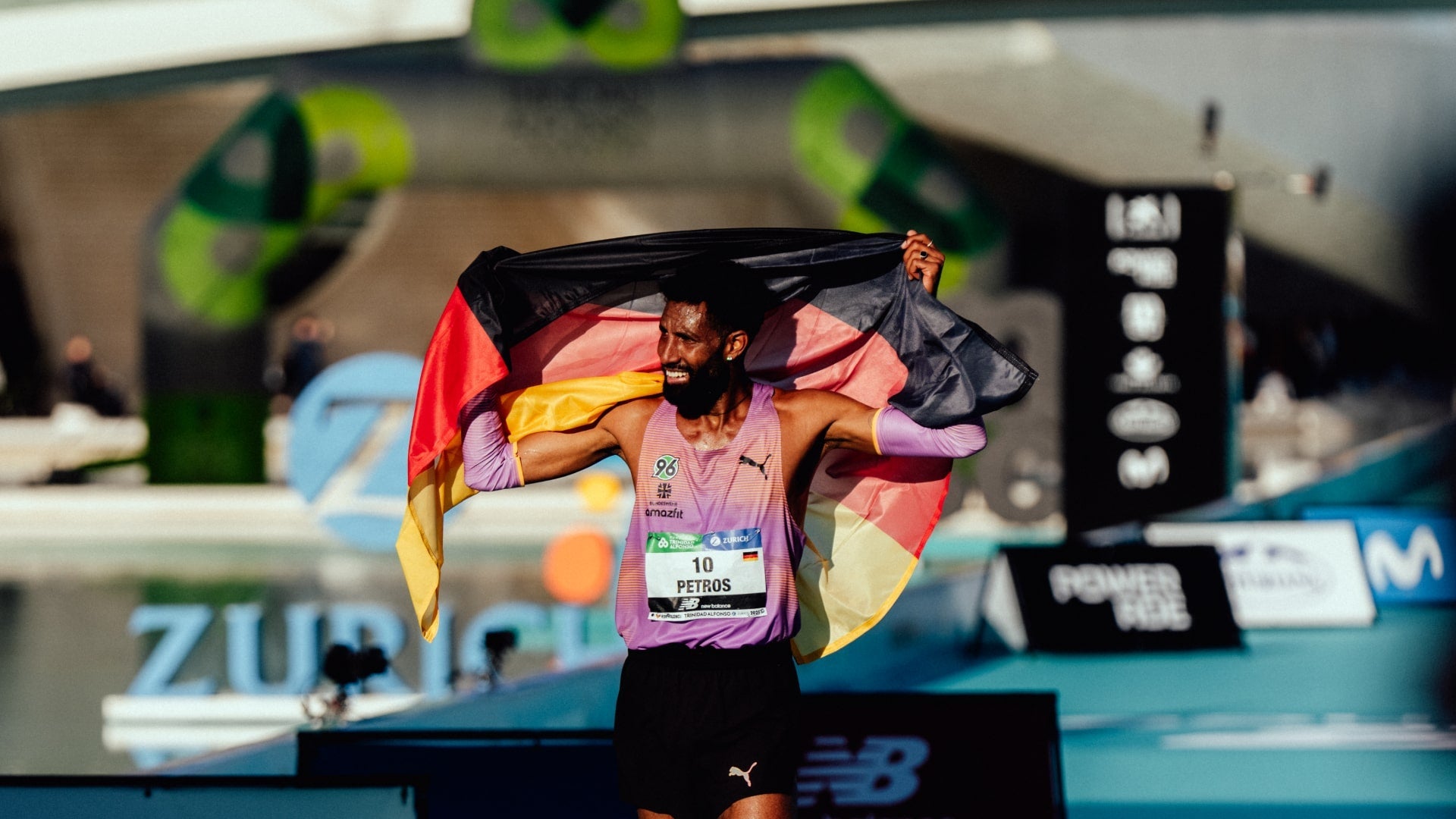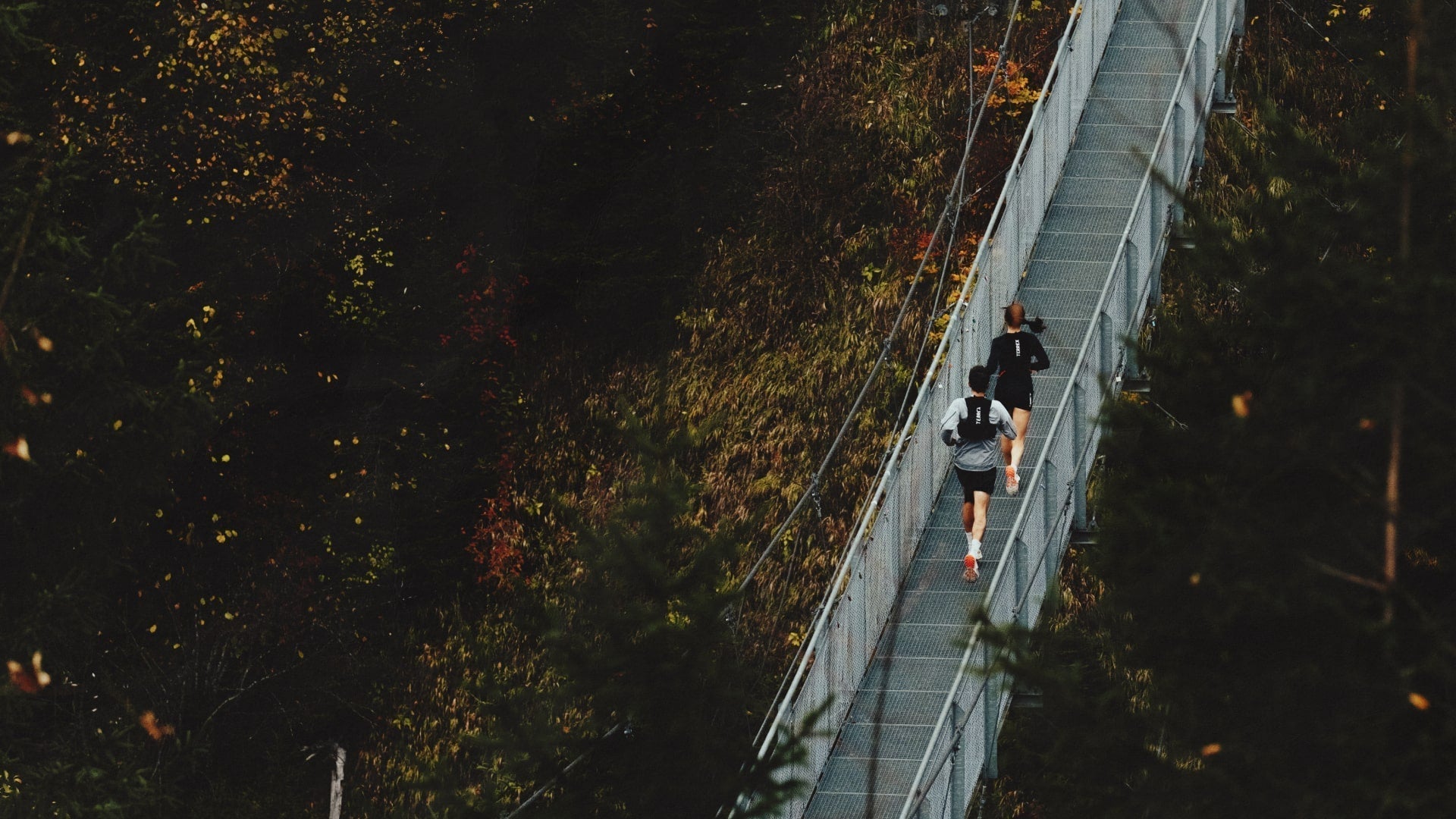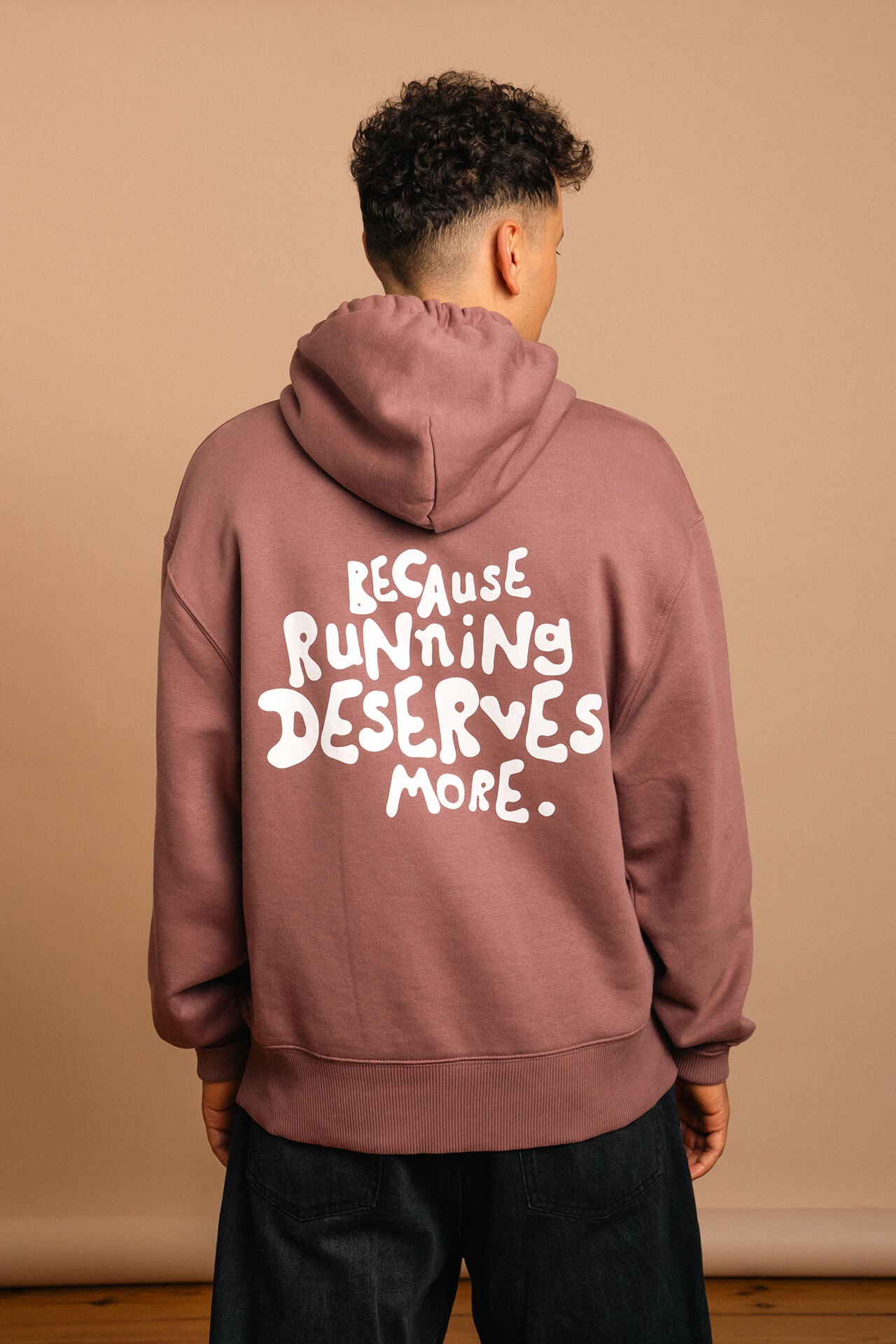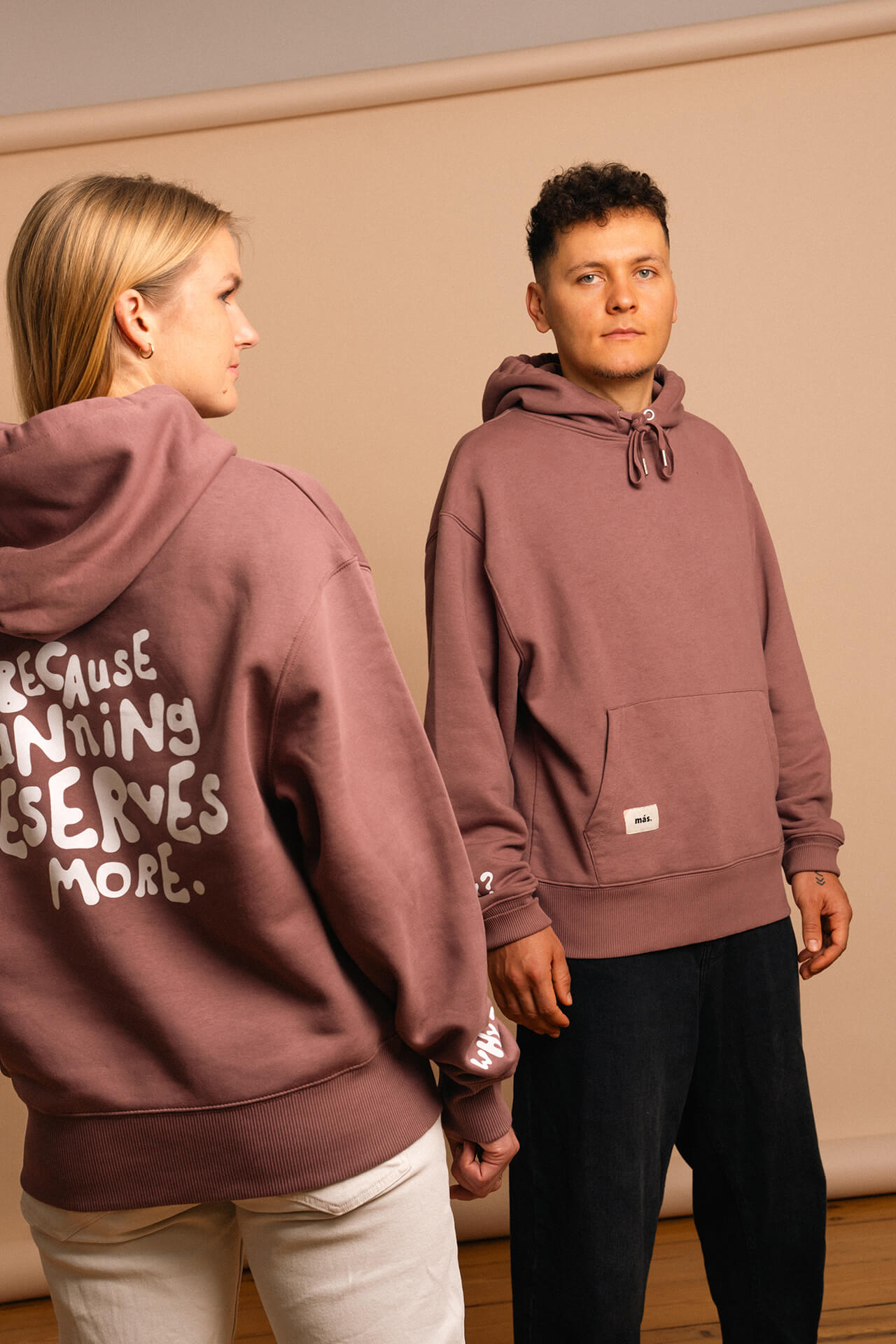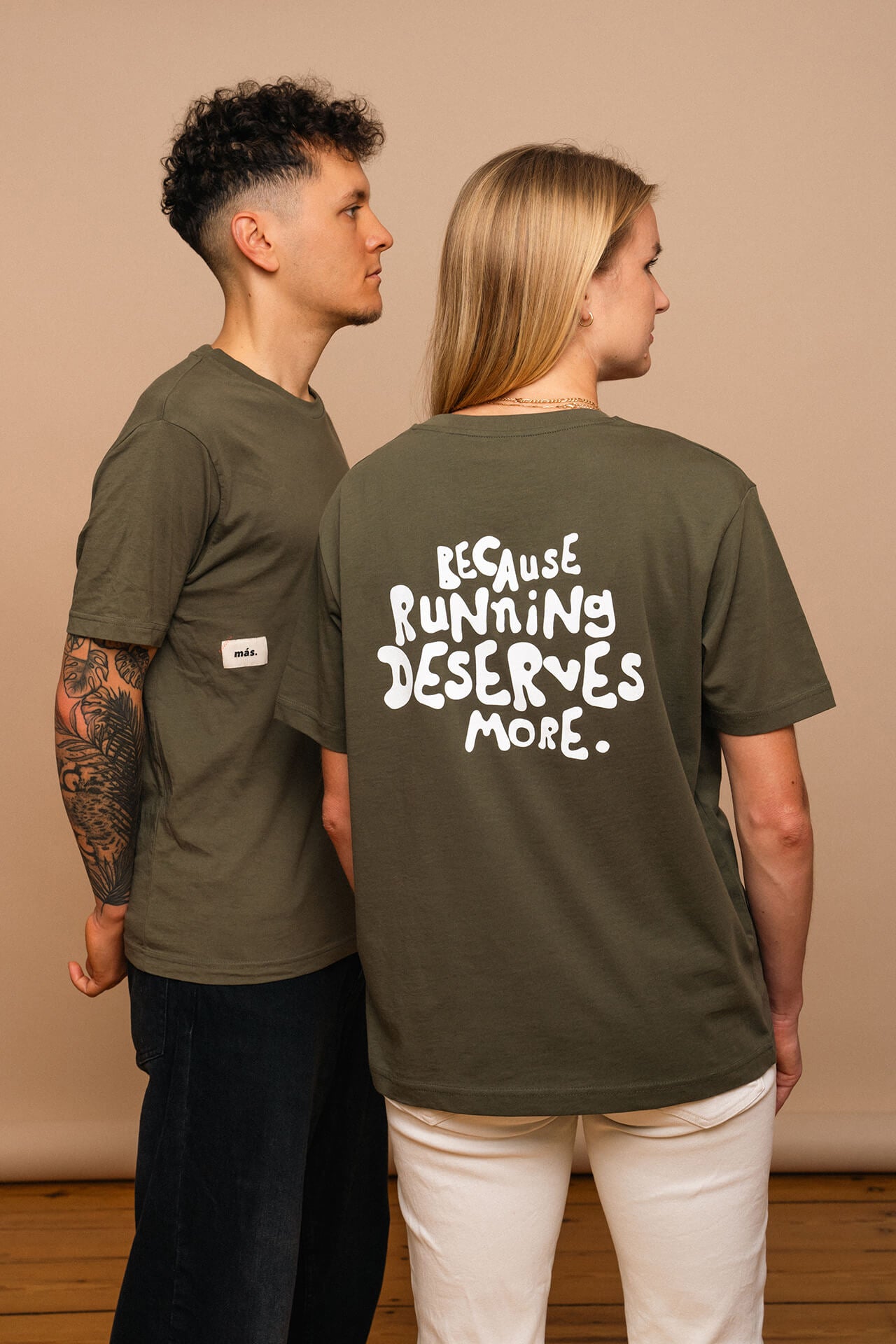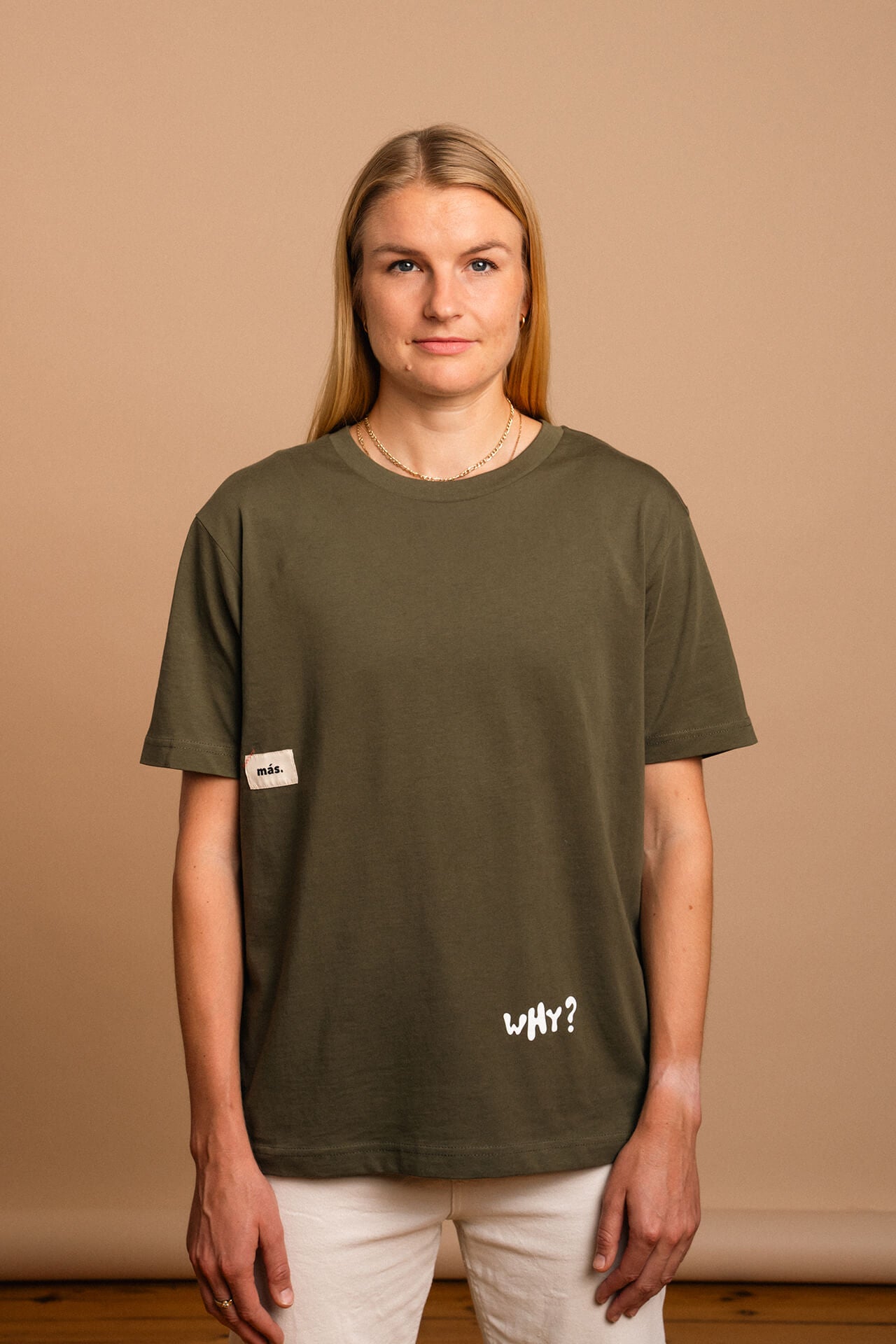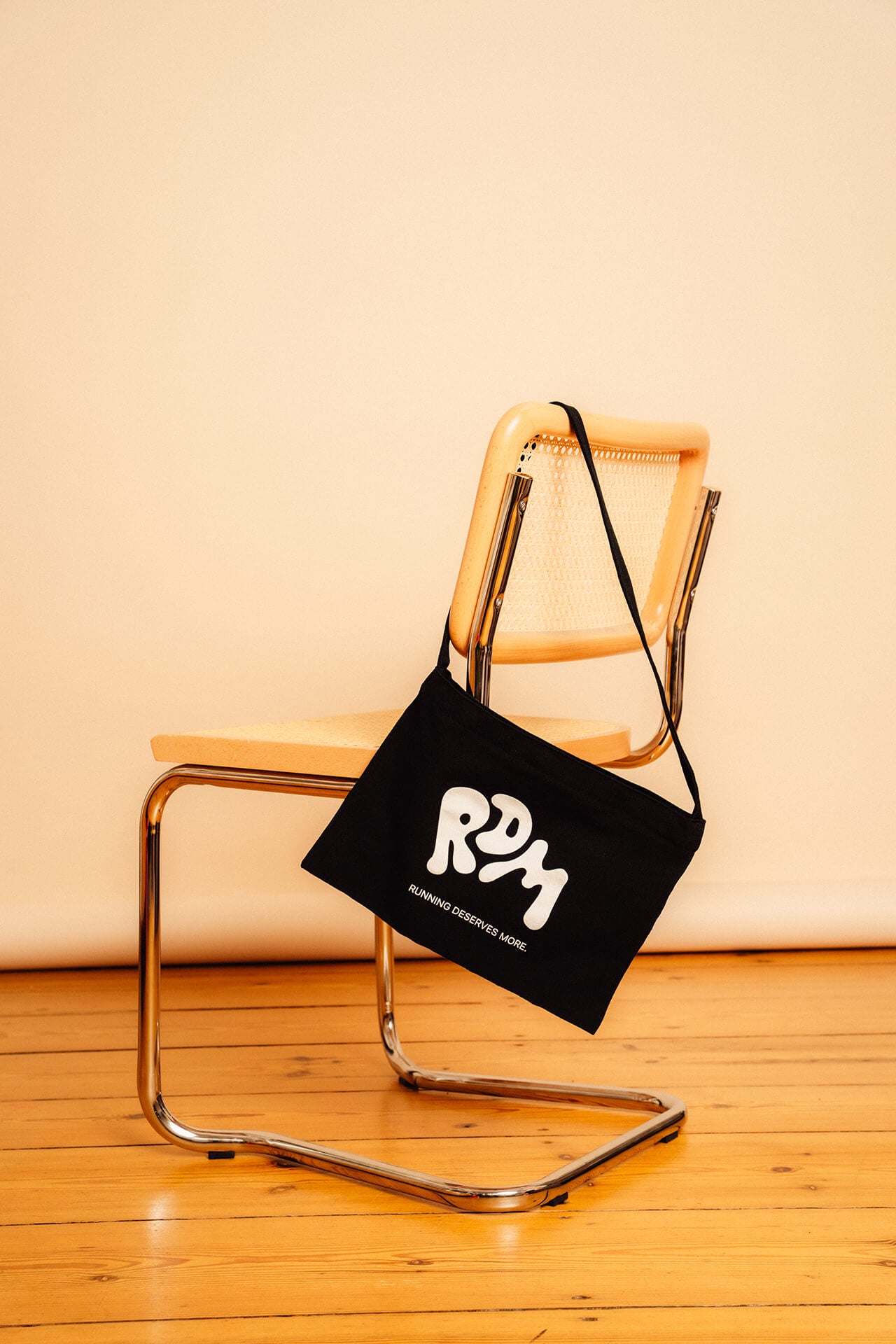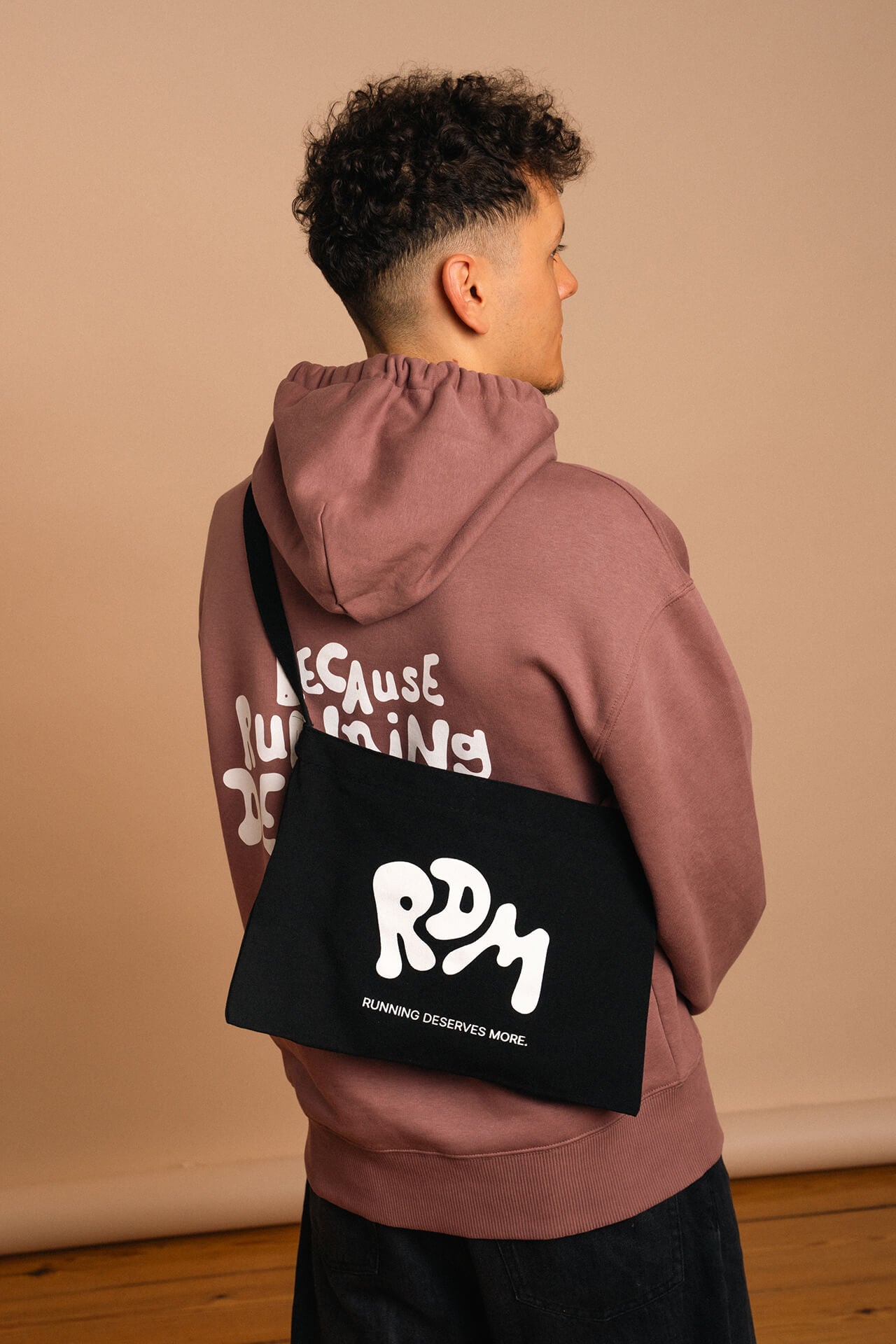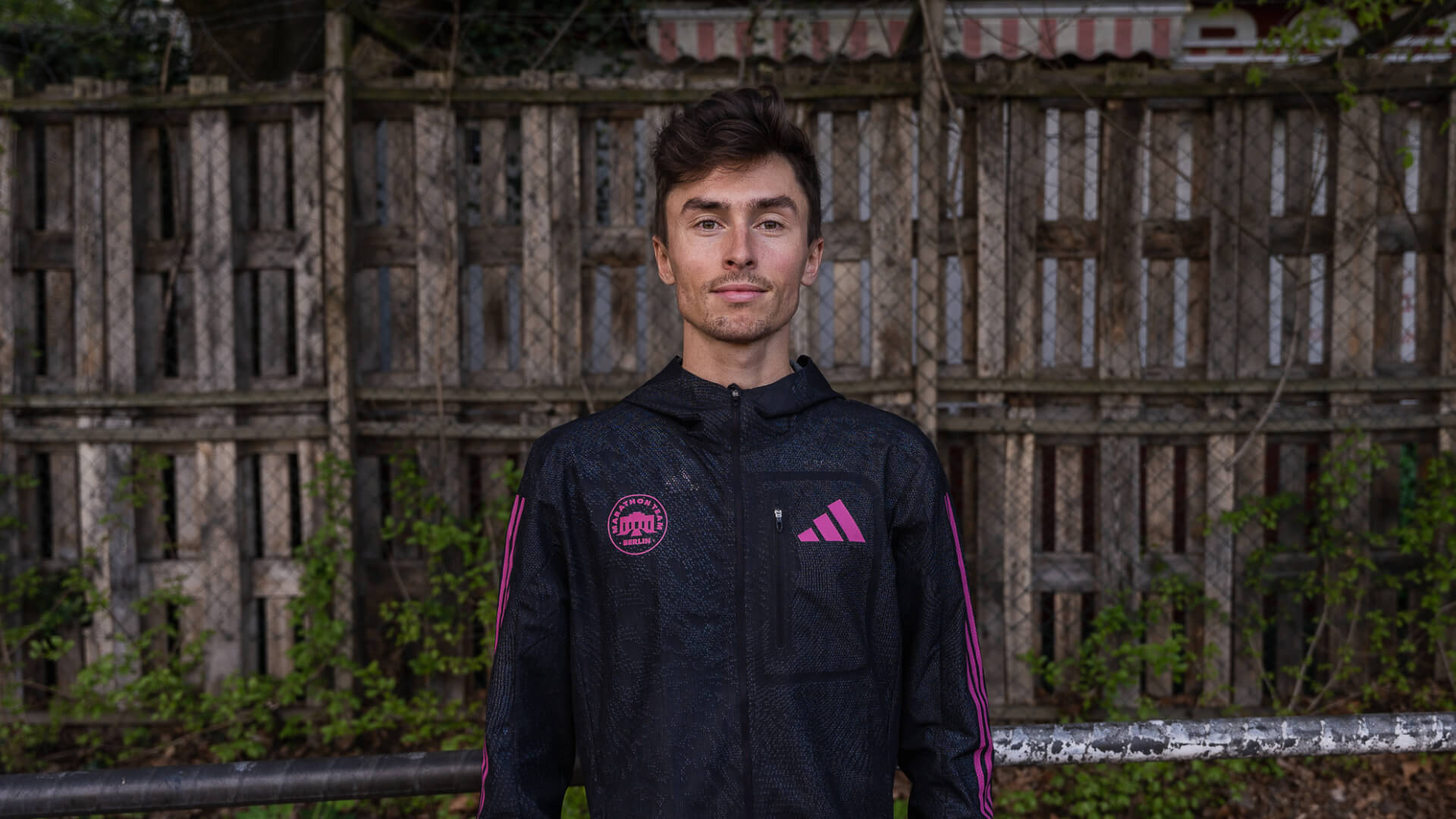
I'm in the favorite phase of my running life
Johannes Motschmann has decided to never give up on a marathon. So far, the Berliner has done it really hard - no matter how difficult the run was. We talk to him about his next goals and what it's like to coach himself.
Words: Agata Strausa
Photos: Florian Kurrasch

Monday morning after the Berlin Half Marathon, the April sun is shining on the capital, which is slowly waking up. We meet Johannes Motschmann, 28, in the minimalist-chic coffee shop Refinery High End Coffee. Motschmann is one of the best marathon runners in Germany – and he has only just begun. However, he has been a runner for a long time, has achieved success in the 3,000 meter obstacle course and competed in the US college league for five years. He celebrated his marathon breakthrough in 2020 and has stuck with it ever since. Motschmann slowly feels like he has arrived, as he tells Agata about más over a matcha latte in Berlin.
Coffee talk with Johannes Motschmann
Instagram: @johannes.motschmann
más: How are you feeling after the Berlin Half Marathon?
Johannes Motschmann: I still have a cold. It's stupid to run with a cold, it's no fun. I just got out after 10 kilometers. I should have just left it. But I had already canceled Seville because I was sick. I didn't want that a second time. Last year Berlin was definitely nicer.
You were the best German there too!
Yes, that's just how it is, that's part of it. I would probably tell others, “Stay in bed, don’t run!” But I’m glad I tried. That's just how it is, now I'm probably sick for three days longer.

You now have a full program coming up! Are you flying to training camp?
Exactly, it's going to Denver, Colorado. My college team mate has a house and a guest room there and said I should always come there because he likes to have training partners. I'll be there for three weeks. And then another half marathon in Istanbul.
So straight from the altitude training camp to the starting line in Turkey?
I fly out of Denver on Tuesday, arrive in Germany on Wednesday - and then go to Istanbul on Friday. Have you ever been to heights and have you had any experience with this high altitude hole?
Yes, I have been to the altitude training camp in Flagstaff several times. But I don't actually know the height hole.
I've been to Colorado once so far, came back and had my best workout after five days. People say that from day five to ten you're in a tailspin.
Maybe it's a myth, you can convince yourself a lot. You could just be tired from the trip or from the hard training in the weeks leading up to it. But back to Istanbul: What is your goal?
Definitely going for PB. The Half Marathon World Championships will take place in Latvia in October. Unfortunately, there are still no standard requirements from the DLV. That's why I want to run as fast as possible so that when it stops, I meet this standard. The race should definitely be pretty intense, with a strong elite field. The slowest pacer should run a 61:00.
Ohh! However, you also recently said that you had the best training year of your career.
This is the first time I've really focused on competitive sports. I definitely noticed during training that I run better in sessions. But it hasn't been reflected in the competition yet, even though I ran the best time in Tokyo (2:11:30 hours). During my best performance from before in Rotterdam, I only trained on the side, not with the focus of now. And in Tokyo I only ran 48 seconds faster.
Maybe it's mental, you're more focused, you really want that good performance, so you push yourself harder. There are a lot of good marathon runners in Germany, you have to run a time of 2:08 to go to the Olympics. Accordingly, I started off quickly in Tokyo and then died very badly.

When is your next marathon planned?
It depends. Of course, Berlin is always on schedule. But since the Olympics are next year, many people don't want to go to the World Championships in Budapest. The World Ranking gives me a chance to qualify for the World Cup. If I could go there, I would love to. I couldn't say no to a World Cup. Then I would rather run Valencia in winter. But if that doesn't work, then definitely Berlin.
Then what about the World Road Running Championships in Riga a week later?
Yes, either Berlin or both World Cups, if that worked. Both are super cool. At a World Cup like this you are somehow a tourist. You give it your all, but as a German you don't have that much to say. Running in Berlin as a Berliner is of course always something special.
How many marathons have you done so far?
Six so far. One in December 2020 (debut in Vienna, editor's note, time: 2:14:38), then the next one the following autumn in Rotterdam (2:12:18). I skipped a spring marathon in 2021 because of my studies. At that time I was already ambitious about running, but only did it on the side. Then there were three marathons in 2022, which was quite a lot. Hamburg in April (2:17:08), the worst so far, where I also got cramps and had to leave. But my goal is to never give up on a marathon. Always finish, that's my motto. After Hamburg came the European Championships in Munich (2:14:52) and the Berlin Marathon (2:14:02). And finally the sixth now in Tokyo.

What is the typical last hard session before the marathon?
It's always different. I try to avoid doing the same thing because then you compare yourself. And then the games in your head start. “Now I did the session slower than last time, am I in worse shape now?!” I write my training myself, so I have a lot of freedom.
Can you still give an example of a unit?
I would do the last hard session on the Friday of the week before the marathon, nine days before the race. I prefer doing tempo change units. Maybe something like 8 x 2,000m at race pace and 1,000m float at a moderate pace, about 20 seconds slower, in between. So you do another 24 kilometer program, with three kilometers running in and out, to have a total load of 30 kilometers.
“That motivates me even more to perform.”
- Johannes Motschmann
Do you have a unit that you can't stand but have to do?
I write my training the same way, so there isn't a unit that I don't like. What I don't like, however, are long sessions all alone. Otherwise, speed sessions in the base phase are not my favorite units because I'm not that good at them.
What would be your favorite unit then?
With accompaniment – the classic long run. A progressive run, where you might start at a moderate 3:40 pace and build up - and run race pace in the last few kilometers. My long run is usually 35 kilometers long, but in preparation for the marathon I try to do 40 kilometers twice.

How did your five years at college in the USA shape you in terms of training?
I am the biggest fan of the college system and grateful for my time there. This also helped me a lot in terms of training. In college, I gradually increased my size. When we were at school there was a lot of shooting at SC Magdeburg, but only a few kilometers were covered. At Iona College, on the other hand, the training was more sustained, with more scope and less intensity. I think that helped me to still run years later.
What I couldn't even imagine a German trainer doing was our hill runs: running a kilometer up a really steep mountain and driving back down in the car. The coach drove up in the van and brought the whole team back down – ten times in a row! Looking back, I think, what kind of weird training is this?! But at that point it was extremely cool, especially with the team.

Was it difficult for you when your college days were over?
Yes definitely. In 2019 after college I thought, okay, that's it, it doesn't get any better. I actually stopped for four weeks, but then really missed running. Now I have to say that right now is the favorite phase of my running life. That tops the college again. At college, I really liked the team aspect of running for something bigger than yourself. What I really appreciate now is the freedom that I am given - also by Marathon Team Berlin. I can really do whatever I want in training, competitions and training camps. Others may prefer to have someone tell them you're doing the training and the competition now. But I like it much better that I can plan it myself and be behind it myself. This motivates me even more to perform.
Thank you for the interview!


